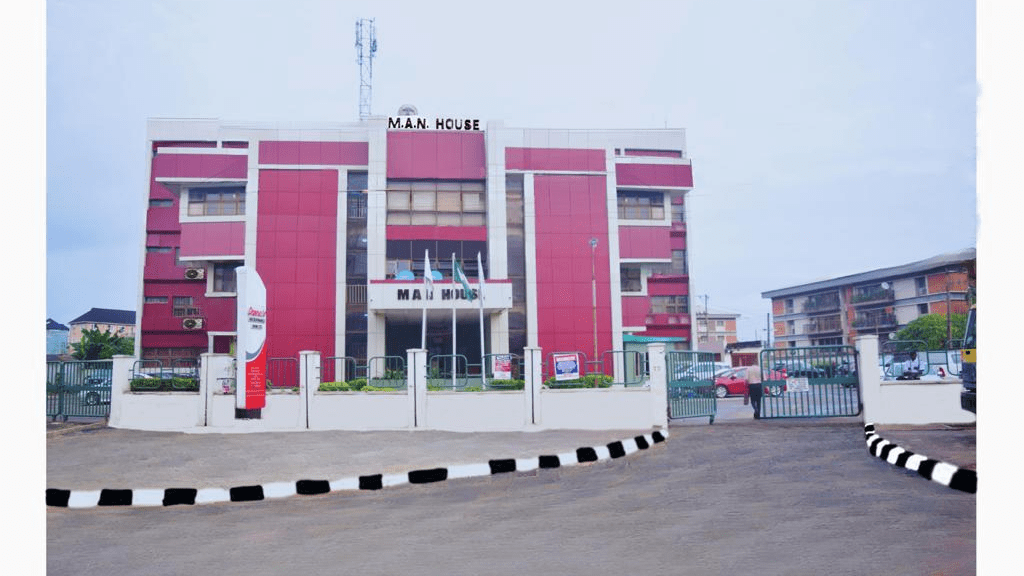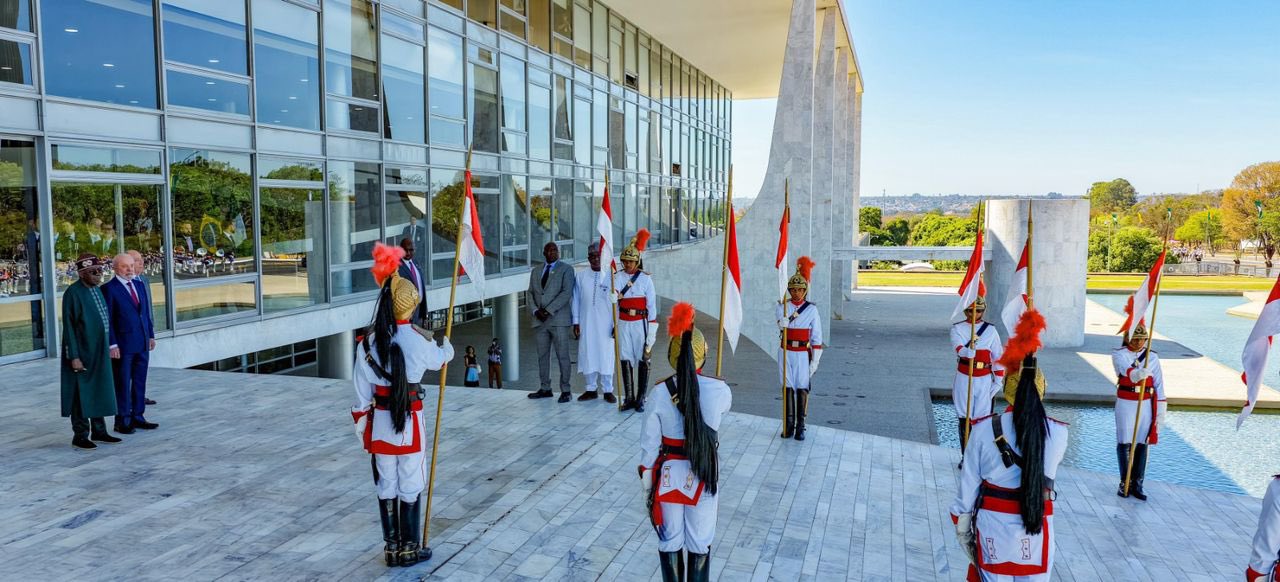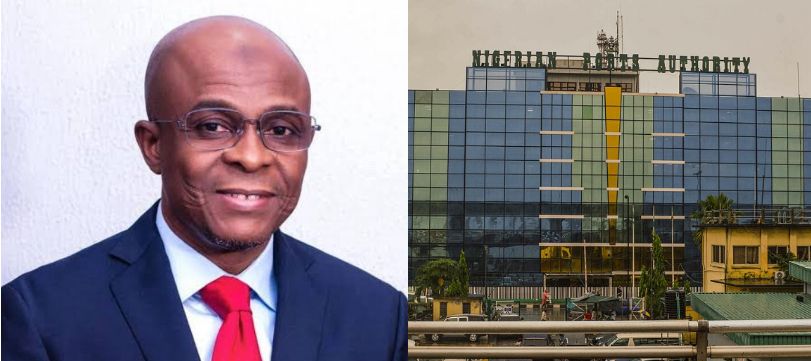OLUKOYEDE AND FIGHT AGAINST FINANCIAL CRIMES
OLUKOYEDE AND FIGHT AGAINST FINANCIAL CRIMES
LEWIS CHUKWUMA argues that the EFCC under Olukoyede is not a tool deployed by the government against its opponents
Clearly, President Bola Ahmed Tinubu’s pick, the fifth Executive Chairman of the Economic and Financial Crimes Commission (EFCC), Mr. Olanipekun Olukoyede, whose appointment was subsequently confirmed by the Nigerian Senate on October 18, 2023, knew he wasn’t headed to a tea party as arrowhead of the nation’s lead anti-corruption agency.
His compelling managerial and professional background essentially denied him any illusions as to what the appointment meant, assuming he nursed any. Succinctly stated, the Commission’s mission is “To eradicate economic and financial crimes through prevention, enforcement and coordination.” In appointing Olukoyede, Mr. President of course did not take the decision lightly given the overarching vision he had enunciated for a new Nigerian state.
Towards achieving the Commissions crucial mandate, President Tinubu gave Olukoyede the requisite free hand to do his job, the best way he understands it. The EFCC Czar who hit the ground running has brought an evangelical fervour to the fight against economic and financial crimes. Many may not know that he is, by the way, is a Pastor in a Pentecostal Church.
But then, it was Nuhu Ribadu, first head of EFCC and currently the National Security Adviser (NSA), who gave an inkling into what tackling corruption in Nigeria really meant when he famously said that, “When you Fight Corruption, it Fights Back.” Ribadu was absolutely correct.
Recently, it has been observed with great concern, the malicious attacks and deliberate efforts to blackmail the lead anti-corruption agency, EFCC, through sponsored influencers, incentivised opinion publications in some national dailies, online and electronic platforms, all targeted at discouraging anti-corruption efforts and shielding kleptocrats from thorough investigation. The pattern is clear: there is an unfolding plot of surreptitious moves to backpedal on the progress made by the EFCC, especially under the leadership of Mr. Olanipekun Olukoyede.
It could be recalled that some reports had recently suggested that Bayo Ojulari, Group Chief Executive Officer of the Nigerian National Petroleum Company Limited (NNPCL), was allegedly pressured into signing a resignation letter by EFCC and DSS operatives. But the EFCC stated clearly that if there was such a development, it was not part of it. The presidency had also denied the allegations and affirmed that Ojulari, appointed in April 2025 to lead reforms within the organization remains the organization’s substantive head.
The controversy flowed from allegations surrounding a $21 million (N34.65 billion) corruption scandal. Civil society groups, including OilWatch Nigeria and the Workers’ Rights Alliance, have called for Ojulari’s arrest and prosecution.
These groups referenced claims that Abdullahi Bashir Haske, a detained associate, allegedly confessed to holding the funds on Ojulari’s behalf. At a press conference on 31 July at EFCC headquarters, the coalition accused Ojulari of economic sabotage, citing the prolonged shutdown of Nigeria’s refineries and alleged plans to privatise NNPCL assets.
The coalition has launched a three-day protest, beginning 1 August, at the National Assembly, NNPCL headquarters, and EFCC offices, to press their demands. Additional allegations centre on a $21 million kickback scheme involving oil traders and pipeline contractors, reportedly uncovered after Ojulari reassigned fund collection responsibilities. This prompted a whistleblower to alert the EFCC, which subsequently froze the implicated account.
In May 2025, the Socio-Economic Rights and Accountability Project (SERAP) had urged both the EFCC and the Independent Corrupt Practices Commission (ICPC) to investigate claims that N500 billion was not remitted by NNPCL to the Federation Account between October and December 2024.
Of course, if there are established grounds to go after the head of any governmental organization, it is within the mandated purview of the EFCC to act. The current leadership of the Commission under Olukoyede brooks no breaches of its clearly stated mandate, no matter whose ox is gored.
So, it is with great concern that the increasing attacks and deliberate efforts to blackmail the lead anti-corruption agency, EFCC, should be resisted. If mere speculations that the EFCC is after its NNPCL top hierarchy had sparked a ridiculous, groundless fightback, endangering the extensive gains recorded by the EFCC in recent times, this must be appropriately countered and neutralised.
Today, the nation’s refineries are in tatters despite tales of multi-billion dollars TAMs. That should grip the attention of the top hierarchy of NNPCL, and certainly not spending energy funding ridiculous witch hunts.
Further key focus should also rather be directed at the budgetary allocations to the EFCC and other anti-corruption institutions which are inadequate, and certainly not counterproductive attacks. Poor resource allocation will gradually push the EFCC and other kindred agencies towards extinction. By limiting their resources, the government is unwittingly crippling their abilities to function effectively and independently.
To truly establish a flourishing democracy, transparency and accountability must be strictly adhered to in governance. Strengthening institutions that combat corruption is crucial.
Recently, the EFCC Chair painted a picture of the achievements of the EFCC under his watch, denying any charge of impunity. To be fair, there has been relatively less hysteria in Olukoyede’s campaign against corruption as he demonstrably regards the battle as a collective responsibility and wants an all-of society-approach.
It will be recalled that he is the first EFCC Chairman to admit publicly that there is corruption even within the EFCC. In 2024, Olukoyede sacked 27 of his own men for misconduct and fraudulent activities. He also ordered a probe into an alleged fraud of $400,000 linked to a sectional head of the EFCC. But perhaps what is more remarkable about the EFCC these days, is that there have been no serious allegations that the agency is being used for political vendetta.
It is encouraging that the EFCC is making good progress in fighting cybercrimes. Assets are being recovered from yahoo guys and restituted to the victims. These criminals are hurting genuine international transactions.
The biggest traditional criticism of the EFCC is that it is a political tool deployed by the federal government against its opponents. This has certainly died down under the Olukoyede era. Also, Nigerians often complain about the EFCC’s heavy-handedness in its operations, such as storming hostels and hotels in the dead of the night and turning things upside down. The current EFCC boss has effectively changed that narrative.
Olukoyede has also demonstrated an inclination to do things in a civil way, a far departure from the past hostile engagement template. He should upscale his commission’s public sensitisation campaign. And this should not be confused with media relations. This will definitely secure the buy-in of Nigerians.
President Tinubu’s appointment of Mr. Olanipekun Olukoyede as the fifth Executive Chairman of EFCC was confirmed by the Nigerian Senate on October 18, 2023. Mr. President did not take the decision lightly given the overarching vision he had enunciated for a new, corruption-free Nigeria state.
A legal practitioner and Certified Fraud Examiner, (CFE), Olukoyede is a regulatory compliance consultant with specialty in compliance management, corporate intelligence and fraud management. He has considerable insight and experience in the investigation and civil litigation of fraud and financial crimes.
The EFCC Chairman is also a consultant on manpower development who has undertaken several anti-corruption surveys and reviews for a number of law enforcement agencies, government institutions and corporate organizations both locally and internationally. His forte also include anti-corruption research and analysis, corporate and business intelligence.
In the course of his career, the 5th EFCC Executive Chairman has had the privilege to participate in very important national and international committees, including membership of the Fraud Advisory Panel (UK) and the Federal Government Technical Committee on the Repositioning of the Nigerian Financial Intelligence Unit (NFIU).
A prolific scholar, his publications include Anti-corruption and Fraud Systems Study and Review in Organizations; Nigerian Banking and Insurance Law Reports; Corporate Law Review; Contract and Procurement Fraud Analysis, 2007; Fraud Risk Analysis & Management; Corporate Fraud Investigation Management; Employment & Employee’s Fraud and Managing Fraud Investigation.
Against this background, it’s then not surprising that the EFCC boss has emerged a quiet pillar and efficient sheriff as the Commission continues to prove to Nigerians that there is no political vendetta in its game plan.
Chukwuma writes from Abuja
The post OLUKOYEDE AND FIGHT AGAINST FINANCIAL CRIMES appeared first on THISDAYLIVE.
LEWIS CHUKWUMA argues that the EFCC under Olukoyede is not a tool deployed by the government against its opponents Clearly, President Bola Ahmed Tinubu’s pick, the fifth Executive Chairman of the
The post OLUKOYEDE AND FIGHT AGAINST FINANCIAL CRIMES appeared first on THISDAYLIVE.
UKRAINE, RUSSIA, AND THE NEED FOR MULTIPOLARITY
UKRAINE, RUSSIA, AND THE NEED FOR MULTIPOLARITY
The war in Ukraine is a cautionary tale about the fragility of global order and the danger of silencing dissent, argues PAT ONUKWULI
War has always carried a strange allure for some confident leaders, a theatre of power where blood is the currency and glory the prize. From the annals of history, emperors and generals have often imagined war as the crucible through which their names are forged into immortality. Yet, as Walter Benjamin once warned, “There is no document of civilisation that is not at the same time a document of barbarism.”
From Thucydides’ chronicles of Athens to Hobbes’ warning in Leviathan that life in war is “nasty, brutish, and short,” war has been one of humanity’s most destructive equalisers, levelling societies by fire and ash. The tragedy unfolding in the Russia-Ukraine war fits into this paradox. A conflict that might have been avoided at the beginning, yet now consumes hundreds of thousands of lives and has destroyed billions in wealth and infrastructure.
It is not simply a European war, but a mirror of the world’s fragile order, an order fraying under the illusion of unipolar dominance. The Cold War’s bipolar balance, for all its flaws, provided checks that prevented the unrestrained absolutism now witnessed. Russia’s invasion of Ukraine, the West’s divided responses, and Donald Trump’s new attempts to broker peace all remind us of a simple but uncomfortable truth: the world is always safer when power is balanced between at least two poles, not hoarded in the hands of one.
At the heart of this war lies a geopolitical miscalculation. When Russia demanded binding guarantees that Ukraine would not be admitted into NATO, Western capitals refused. The demand was portrayed as blackmail rather than an existential security concern. Today, as former President Donald Trump openly declares that he does not envisage Ukraine ever becoming a NATO member, one wonders whether history might have unfolded differently had this assurance been given earlier. The absence of such guarantees not only deepened mistrust but also provided Moscow with the narrative of encirclement that justified its full-scale invasion in 2022.
Again, Trump’s recent attempts to broker peace between Russia and Ukraine underscore the irony. He has positioned himself as a mediator, working toward a direct meeting between Vladimir Putin and Volodymyr Zelensky. Reports from his summit with Putin in Alaska suggest that Trump carried proposals which favoured Russia’s insistence on territorial concessions. At the same time, the European Union raised concerns that such moves could entrench aggression rather than resolve it. It is the quintessential theatre of power politics: the strong dictating the terms, while smaller nations struggle for survival within frameworks designed by others.
This war connects with other flashpoints in the global order. The violence in Gaza between Israel and the Palestinians, and the shadow conflict between Israel and Iran, echo the same grammar of absolutism, the insistence of one party to impose a single narrative at the expense of others. Whether in international politics, national governance, or even local family meetings, authoritarianism breeds only resistance and bitterness. A one-party state that vilifies the opposition, or a community leader who brooks no dissent, mirrors the same instinct that drives nations to war: the refusal to accommodate plural voices. History consistently shows that peace built on domination is no peace at all, only the silence of the graveyard.
For Nigeria and West Africa, this conflict is not a distant theatre. The war has shaken global food supply chains, particularly the export of wheat and fertilisers that African economies depend on. Rising fuel prices and disrupted logistics have led to food inflation in Nigerian markets and increased insecurity in rural communities. Nigeria, already wrestling with insurgency and separatist tensions, has learned that in a world where great powers make transactional bargains, smaller states cannot rely solely on distant allies. Nigeria’s peace and survival depend on building resilient local economies, strengthening ECOWAS partnerships, and advancing inclusive governance at home.
Philosophically, the Russia–Ukraine conflict resonates with Walter Scheidel’s concept in The Great Leveller, where he identifies war as one of the “four horsemen” that level societies through destruction and redistribution. The levelling power of war is never benign; it flattens not only inequality but also communities, livelihoods, and hope itself.
The lessons are profound. In a multipolar or even bipolar world, there exists a measure of checks and balances, where no single power can impose its diktat unchallenged. But in a unipolar environment, whether global or domestic, the temptation to impose harsh settlements becomes irresistible. That is why Nigeria must resist the drift toward absolutism in its own politics, where opposition voices are easily branded enemies of the state. Nigeria’s democracy, fragile as it is, can only mature if there is a conscious maintenance of the plural voices that make dialogue possible.
In the end, the war in Ukraine is not just about territory in Eastern Europe. It is a cautionary tale about the fragility of global order and the danger of silencing dissent. As Trump attempts to script himself into the role of peacemaker, the hope now is that lasting peace returns to Ukraine, not the brittle silence of surrender, but a settlement that recognises mutual security and spares further bloodshed; otherwise, humanity risks returning again and again to war, chasing illusions of glory but constantly dissolving into smouldering ruins and the haunting calm of emptiness. And as Europe grapples with its own anxieties about appeasement, the rest of the world must take stock.
Nigeria, which has had its bitter lessons, must pay heed. The Biafran conflict of 1967–1970 claimed millions of lives and left wounds that still haunt its national psyche more than half a century later. A war fought in the name of unity, yet it birthed mistrust, marginalisation, and unhealed grievances that echo in today’s politics. The ghosts of Biafra remind us that war never truly ends when the guns fall silent; its shadows persist in memory, in exclusion, and in the unfinished work of reconciliation. That is why Nigeria must read Ukraine’s tragedy not as distant news, but as a mirror of what happens when dialogue gives way to absolutism. Therefore, Nigeria must anchor itself in strong institutions, protect its borders, and invest in inclusive governance so that peace does not remain an abstraction but becomes a lived experience for its people.
Dr. Onukwuli, a legal scholar and public affairs analyst, writes from Bolton, UK. patonukwuli2003@yahoo.co.uk
The post UKRAINE, RUSSIA, AND THE NEED FOR MULTIPOLARITY appeared first on THISDAYLIVE.
The war in Ukraine is a cautionary tale about the fragility of global order and the danger of silencing dissent, argues PAT ONUKWULI War has always carried a strange allure for
The post UKRAINE, RUSSIA, AND THE NEED FOR MULTIPOLARITY appeared first on THISDAYLIVE.
Stockbrokers Advocate Urgent Reforms to Grow Nigeria’s $1trn Economy
Kayode Tokede Stockbrokers, under the banner of the Chartered Institute of Stockbrokers (CIS), have called on the federal government to initiate urgent economic reforms aimed at repositioning the Nigerian capital market as…
Bawumia rubbishes Bryan Acheampong’s remarks: “Stop hiding behind tribal and religious propaganda”
Former Vice-President Mahamudu Bawumia has come out swinging against what he calls “tribal bigotry and propaganda” being peddled by his rival, Bryan Acheampong, in the lead-up to the New Patriotic…
KEPCO Vs. Ecobank & Ors: Onikepo Braithwaite Missed the Point
KEPCO Vs. Ecobank & Ors: Onikepo Braithwaite Missed the Point
RIGHT OF REPLY
By Ehimen Oriaifo
In an article by Onikepo Braithwaite published in THISDAY newspaper on 19th August 2025 entitled, ‘KEPCO, Ogunba and Jankara Tactics’, the learned author pretended to have set out to wage a war against what she called ‘jankara tactics,’ but she ended up engaging in high level ‘jankara’ journalism.
In summary, Onikepo Braithwaite argued that Kunle Ogunba SAN “misrepresented” the judgement of a trial court in Suit No FHC/L/CS/1242/2025, Kepco vs Ecobank & 9 Ors, delivered by Justice Akintayo Aluko of the Federal High Court, Lagos Judicial Division, on 5/8/2025.
Making reference to some concerns expressed by one Mr Ola-Daniels, who wondered in a broadcast interview why Kunle Ogunba SAN would put up an advertisement as a Receiver Manager after a trial court’s “judgement”, Onikepo Braithwaite wrote: “This is a serious allegation against a Senior Advocate, that is, misrepresentation of facts in order to deceive the general public, and to possibly secure benefits for his clients and himself.”
She wrote further, “I was disappointed to discover that Ogunba, SAN, appears to have engaged in what we lawyers call ‘jankara tactics’ (in his advertisements) which simply means unethical or sharp practices.”
At this point, it is important to note that the substantive matter in issue here concerns Kepco Energy Resources Nigeria Limited (Kepco), and 10 banks who advanced a syndicated loan to Kepco, leading to appointment of Ogunba SAN as Receiver Manager for the debtor company, Kepco. It is in this substantial matter that the appointment of Ogunba SAN as Receiver Manager is in issue.
So, as Onikepo Braithwaite even admitted in her article, the substantial matter is not in issue now as it is still pending in court. What is in issue today seems to be whether the interlocutory ruling stops Ogunba SAN from being the Receiver Manager or whether it should stop him from performing his function as the Receiver Manager of Kepco?
So, anyone that understands this basic difference will appreciate the fact that attempts to lump up the issues in the substantial case with the ruling on the interlocutory matter in order to confuse undiscerning public and give Ogunba SAN a bad name is nothing short of jankara journalism.
Now, without allowing legal technicalities to further confuse readers, Ogunba SAN had stated that the court affirmed his appointment as Receiver Manager, but Braithwaite claimed this is deliberate misinterpretation of the judgement.
Onikepo Braithwaite presented a one-sided narrative in her article. This constitutes a significant breach of fundamental journalistic ethics. Global journalistic standards, such as those upheld by organizations like the Society of Professional Journalists, emphasize the crucial principle of fairness and accuracy. A core tenet of this principle is giving subjects of negative or critical stories a chance to respond.
Onikepo Braithwaite had once written extensively on the importance of reliable data and building public trust. In her article titled “When Trust Is Everything,” she argues that a lack of trust in data undermines public discourse and that credible information is the basis for good policymaking and media dissemination. It is therefore ironic and disappointing that an advocate for such principles would publish a one-sided story without seeking to verify the facts from all parties involved. By not contacting Ogunba SAN for his perspective, she undermined the very principles of accuracy and trust that she has promoted as essential for both the media and public discourse.
Furthermore, Onikepo Braithwaite, who accused Ogunba SAN of ‘jankara tactics’, in the article in question did admit thus: “in actual fact, the court was constrained by established judicial precedent not to be able to set aside his appointment by an interlocutory application in such circumstances, and did the next best thing that the law permits by restraining him from exercising the functions of a Receiver/Manager, which was admitted by Ogunba, SAN in Ground 10 of his Notice of Appeal.”
Two key things can be taken by all concerned from this statement from Braithwaite:
1) The court acknowledged Ogunba SAN’s appointment as Receiver Manager of Kepco.
2) The court admitted it was constrained by established judicial precedent not to be able to set aside his appointment by an interlocutory application in such circumstances.
Also, as Braithwaite admitted in the same article, “on page 36 of the Composite Ruling, the court held that “Since there is evidence before the court that the Receiver/Manager has been appointed, that act can no longer be restrained by the court”.
He added: “In Agwu & Ors v Julius Berger (Nig) Plc (2019) LPELR-47625(SC) per John Inyang Okoro, JSC, the Supreme Court held inter alia that “….in determining an interlocutory application pending the trial of the substantive case, care should be taken not to make pronouncements which may prejudice the trial of claims filed and still pending before the court. To do otherwise, is to prejudge the matter in respect of which evidence is yet to be led”.
So, I contend herewith that Onikepo Braithwaite and any informed reader should note therefrom that this is the core of the issue under debate here. The question should be, who is being economical with the truth here: Ogunba SAN or Braithwaite and others?
After a careful consideration of the the issues as provided in the judgement, the appeal processes, the articles amongst others, I am of the opinion that the matters to be determined include:
- Did the court deny the appointment of Ogunba SAN as a Receiver Manager by the banks and for Kepco? The answer is no! The court in the refered judgment rather acknowledged him as the Receiver Manager of the said company.
- If the court did not deny the fact of his being the subsisting Receiver Manager, why is Onikepo Braithwaite unfairly accusing the learned Silk of ‘deliberately misinterpreting the ruling of the court?
- Did Ogunba SAN outreach his powers as a Receiver Manager when he caused advertisement to be published in Thisday newspaper and others for proper recruitment that will lead to effective management of the company?
Again, the answer is no until a competent court says so. Everybody knows that if a competent court formally acknowledges in any ruling that someone is a Receiver Manager of a particular company, both justice and equity expect that person to remain so and to act as the Receiver Manager of the same company pending and until a court of competent jurisdiction gives a contrary ruling.
In the instant case, a contrary ruling has not been given. But according to Onikepo Braithwaite, the trial court’s acknowledgement of Ogunba SAN’s due appointment is contained in an interlocutory ruling of the court and not in the judgement of the substantive matter and for that reason, Ogunba SAN should not have acted based on the interlocutory ruling. He should instead wait for the final judgement after the full trial before doing his work.
By this warped argument, the writer insinuated that an interlocutory ruling of a competent court is not a proper ruling to be respected and obeyed.
It is hard to accept that this argument over whether or not Ogunba SAN should act as Receiver Manager is from a learned mind, except if it was just made to ridicule Nigerian law and to misinform unlearned minds.
I say so because it is settled law that a competent court’s ruling in any matter, be it interlocutory or substantial, is law and must be obeyed. A case like Angelcom Resources Ltd. v. El Kabir Global Business Nigeria Ltd. (2021) for example shows how binding an interlocutory ruling is on parties in a case and on the court itself. In practice, this means that “a party affected by an interlocutory ruling cannot simply ignore it because they disagree with it. If a party believes a ruling is wrong, his avenue for relief is to appeal it to a higher court.”
This is even more because the court itself is bound by its own rulings unless they are set aside by a higher court.
The general rule here is that interlocutory rulings are “binding on the parties and the court that issued them unless set aside on appeal.”
This being the case, it smacks of mischief to attempt a deliberate mix-up that suggests that obedience of an interlocutory ruling should depend on the final judgement of a substantial matter that is still ongoing.
Applied to the instant case, it means that it would be unlawful to suggest that Ogunba SAN should ignore acknowledgement of his appointment as Receiver Manager of Kepco in the interlocutory ruling and that he should wait until the determination of the substantial matter before doing his work. This is where Onikepo Braithwaite seems to have missed it. She possibly does not know how delicate and important the duty of Receiver Manager is for the protection of investors and the entire corporate world.
What should interest wise interrogation is what constitutes the legitimate duties of a Receiver Manager and if the instant Receiver Manager is acting within the bounds of law?
Under the Companies and Allied Matters Act (CAMA) 2020, a Receiver Manager has the power “to take control of the company’s property, operate its business, sell assets, realize the security, and carry out all necessary actions to discharge their duties” for the benefit of the stakeholders.
So, it can be seen that one of the least powers of a Receiver Manager is to exercise the powers needed to turn around a company in the situation Kepco has found itself.
The least the learned Silk should do in his capacity as the Receiver Manager is to begin by shopping for the right people who will assist him to handle the intricate affairs of the company at a time like this. This seems to be the exact thing Ogunba SAN did through the prompt publication of the said advertisement.
My advise therefore to Onikepo Braithwaite is that even the court shows full understanding of the importance and the need to protect a debtor company through appointment of competent Receiver Manager in the interest of investors and therefore said it cannot order in the interlocutory ruling that the learned Silk was not the Receiver Manager of the said company at the material time.
It is hard to understand why a learned author and public commentator will condemn a highly rated professional, in the person of Kunle Ogunba SAN, from diligently doing a job he was engaged to do?
Although Nigerian case law on removing a Receiver Manager may not be found in a single landmark case, it is a fact that it is primarily governed by the Companies and Allied Matters Act (CAMA) 2020.
The Act grants courts the power to discharge a receiver under specific circumstances. Such circumstances include: “that the purpose for their appointment has been fulfilled, that they have breached their duties, that the company filed for administration,” etc.
A receiver can also be removed because of misconduct, like if he is found to have taken actions contrary to the best interests of the company. So, as we can see, name calling in the media space is certainly not one of the reasons or the procedure for the removal of a Receiver Manager, neither is it a means of stopping him from performing his legitimate functions.
In this instant case, it is better to await the final judgement of the court in the substantial case.
•Oriaifo writes from Lagos
The post KEPCO Vs. Ecobank & Ors: Onikepo Braithwaite Missed the Point appeared first on THISDAYLIVE.
RIGHT OF REPLY By Ehimen Oriaifo In an article by Onikepo Braithwaite published in THISDAY newspaper on 19th August 2025 entitled, ‘KEPCO, Ogunba and Jankara Tactics’, the learned author pretended
The post KEPCO Vs. Ecobank & Ors: Onikepo Braithwaite Missed the Point appeared first on THISDAYLIVE.
MAGGI Celebrates Women, Culture, Community at August Meeting
MAGGI, the iconic seasoning brand from Nestlé, has once again reinforced its commitment to women and communities in Nigeria by sponsoring the 2025 August Meeting across five South-Eastern states. This…
Coronation Lists N8.79bn Series I Infrastructure Fund on NGX at N100
Kayode Tokede The Coronation Infrastructure Fund (CIF), which made headlines earlier in 2024 for achieving the largest capital raise in a Series I issuance for an infrastructure fund in Nigeria,…
GCS Launches Innovative Crypto Solution for Nigerians
Kayode Tokede GCS, a revolutionising company transforming coal ash to high-quality products, have announced AshToken, a cryptocurrency ecosystem dedicated to supporting businesses, users across Nigeria and beyond. The unveiling of…
Three Nigerians Jailed in U.S. for Covid-19 Fraud
Three young Nigerians have been jailed in the United States for stealing over $520,000 from Covid-19 unemployment programmes, in a case that once again casts a shadow on Nigeria’s global…
Nigeria Deports 51 Foreigners Over Cybercrime
The Economic and Financial Crimes Commission (EFCC) has deported another batch of foreign nationals convicted for cybercrime and internet fraud, in a move the Agency says is aimed at protecting…





